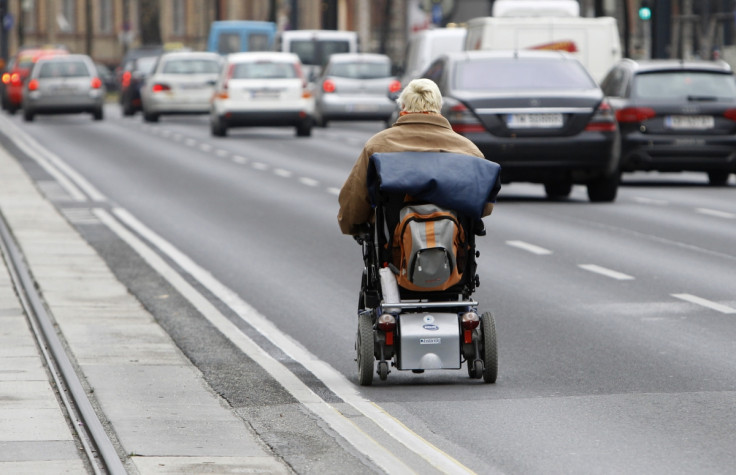Paraplegic man travelling across China on wheelchair to highlight plight of disabled people

With an aim to raise awareness about the plight of physically challenged people in China, a 29-year-old paraplegic man has set off on a wheelchair ride across China. He will travel a distance of more than 3,500 miles (4,000km) during his entire journey.
So far, Quan Peng, a resident of Gansu province in western China, has travelled to 43 cities and towns in five provinces in China in 566 days. He had initially hoped that he would be able to complete his journey in around nine months. He started his adventure ride in August 2014 and in the coming six months, he will approach his final destination, the southern tip of China.
"I'm not only battling against my disability, but against discrimination," Peng was quoted as saying by CNN. Narrating his ordeal during the journey, he said that he was denied a room whenever he approached a hotel for booking. "Restaurant owners would refuse to take me in because they see me as a beggar; I go to a hotel, they would tell me they are fully booked," Peng said.
He has mostly been sleeping in a tent or on his wheelchair and sought refuge in hospitals, banks and public toilets for his daily chores. All through his journey, he wanted to study and experience the facilities provided to disabled people in his country.
According to latest data from the China Disabled Persons' Federation, around 85 million people in China are physical challenged. "The battle against disability includes my own physical condition and the barriers out there," said Peng, who quit his job in customer service in Beijing to set off on this journey.
"How on earth would a country let its 80 million physically-challenged get around by crawling?" questions Peng who had to crawl his way up at Taishan, one of China's holy mountains, due to lack of facilities for physically challenged people. "There is no place I can't reach after that," he added, noting that he no more has any "mental barriers."
Peng's journey helped him discover serious mobility issues for wheelchair-bound people across China, from using restrooms to boarding buses. He found that either there was a serious lack of facilities for wheelchair-bound people or the facilities created did not meet their purpose. And this was the scenario even in big cities like Beijing and Shanghai.
Denying any financial favours, Peng said he wants to show that despite physical challenges, people like him are "able to work, to create value and are not useless people staying in bed all day long".
© Copyright IBTimes 2024. All rights reserved.








